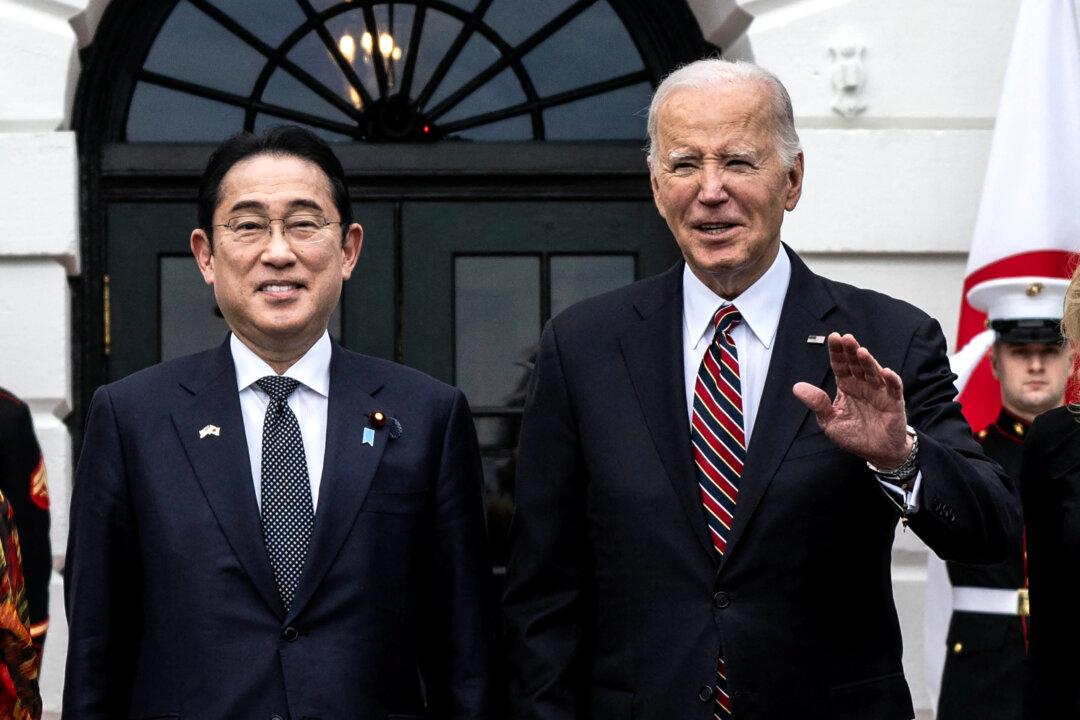WASHINGTON—Japanese Prime Minister Fumio Kishida arrived in Washington on April 8 for a multi-day visit that is expected to strengthen the U.S.-Japan alliance amid the growing aggression from communist China.
President Joe Biden and First Lady Jill Biden will first welcome Mr. Kishida and his wife to the White House on the eve of April 9 ahead of the official visit and a formal state dinner. The Japanese leader will be the fifth foreign leader honored by President Biden with a state banquet since he took office in 2021.






